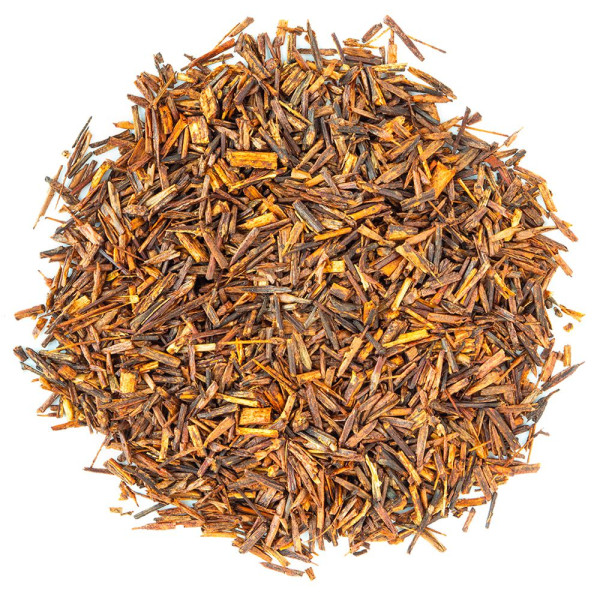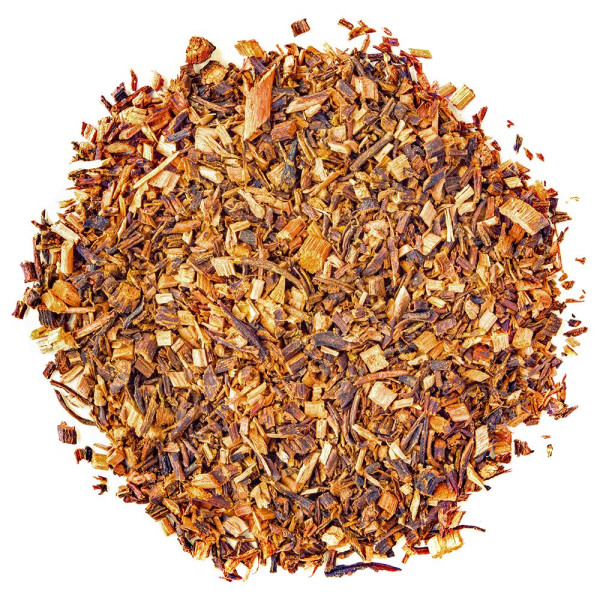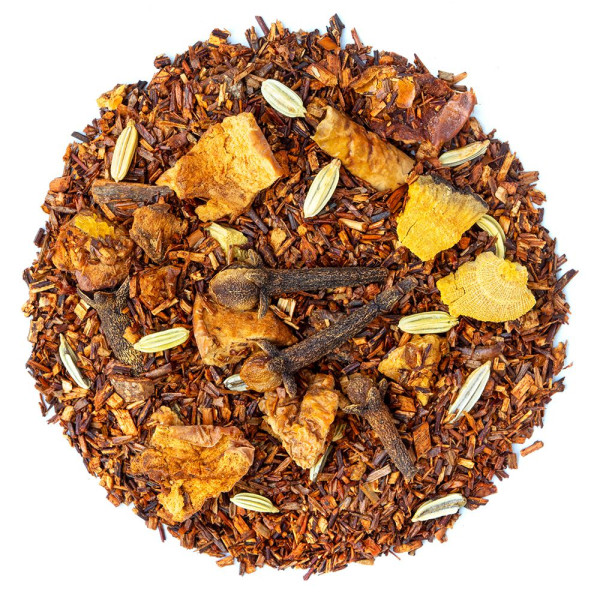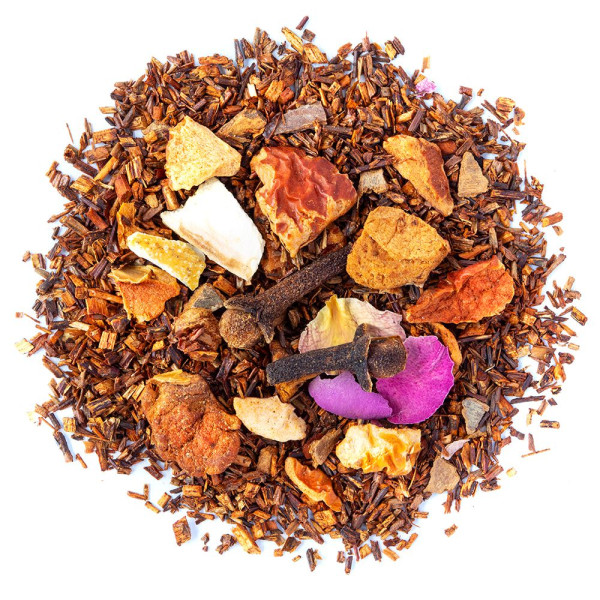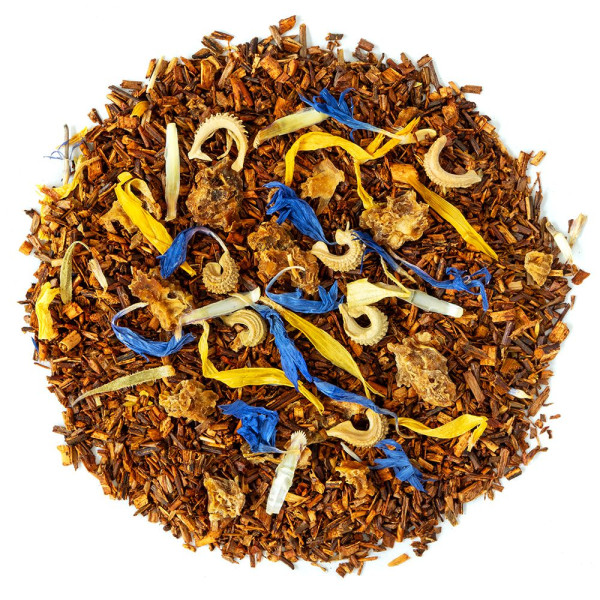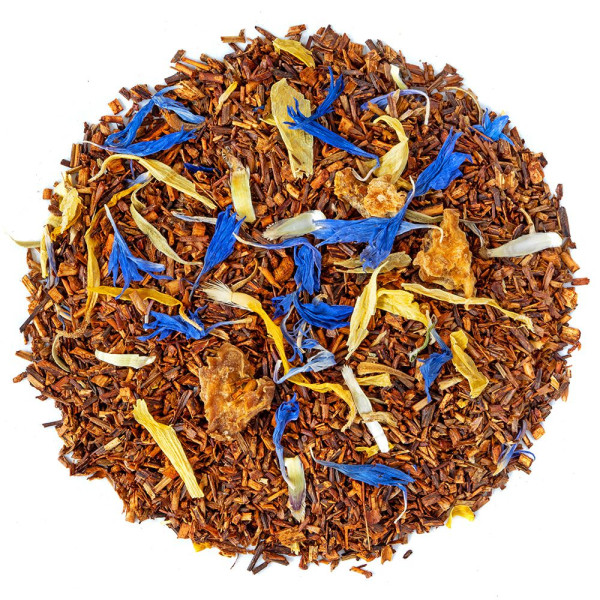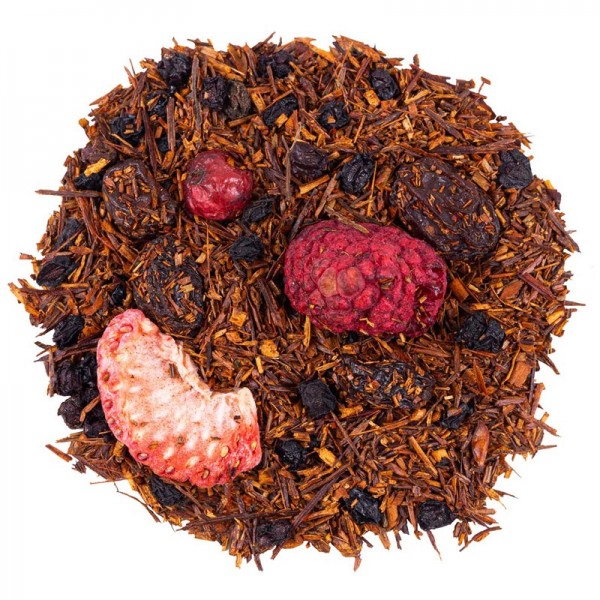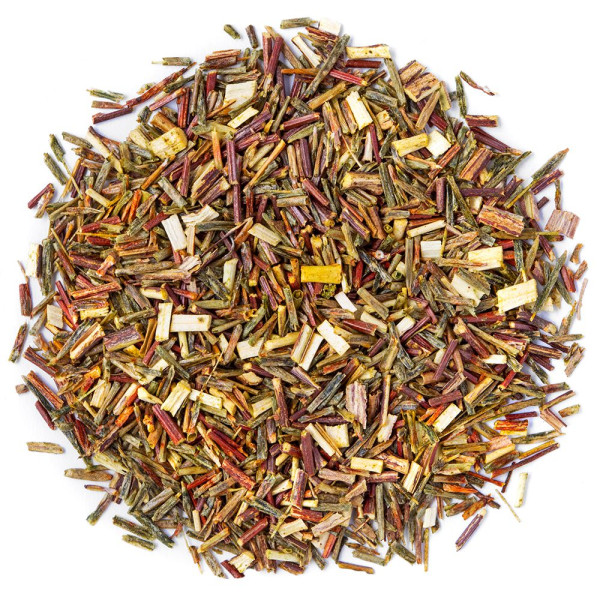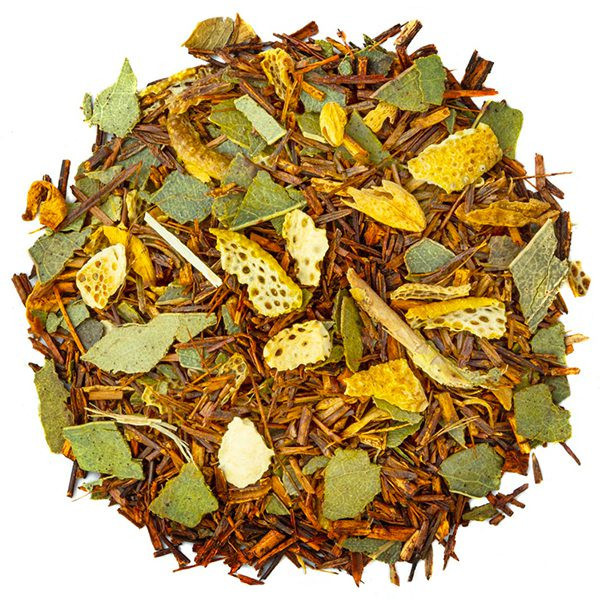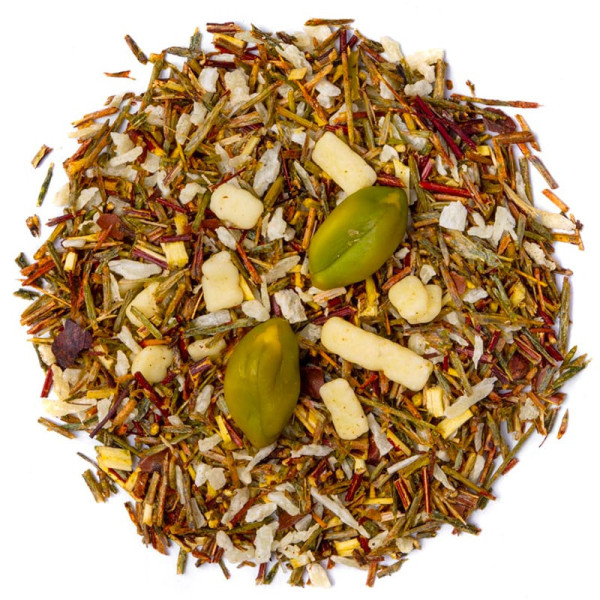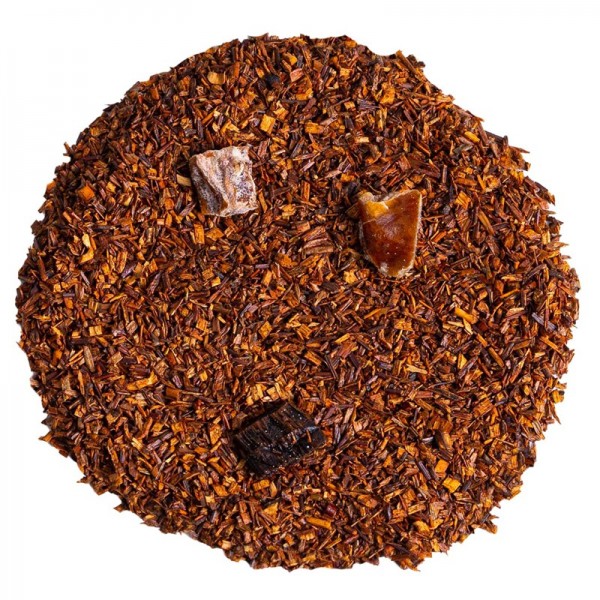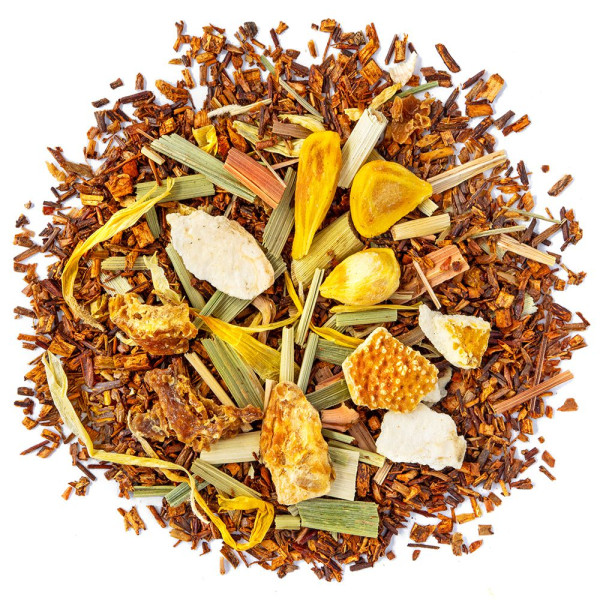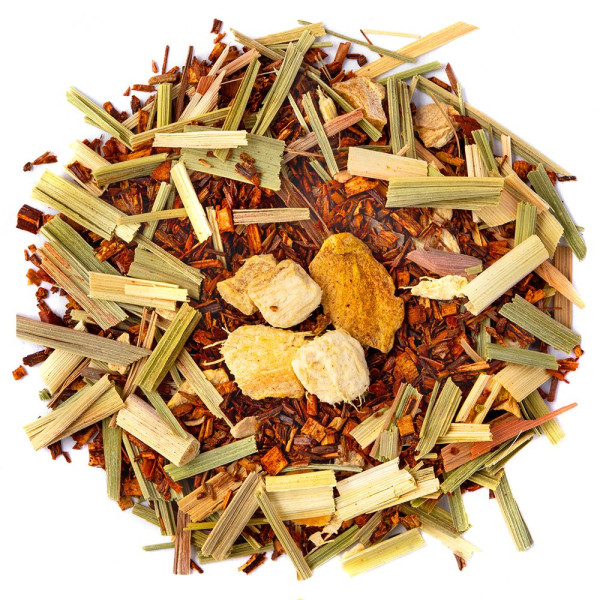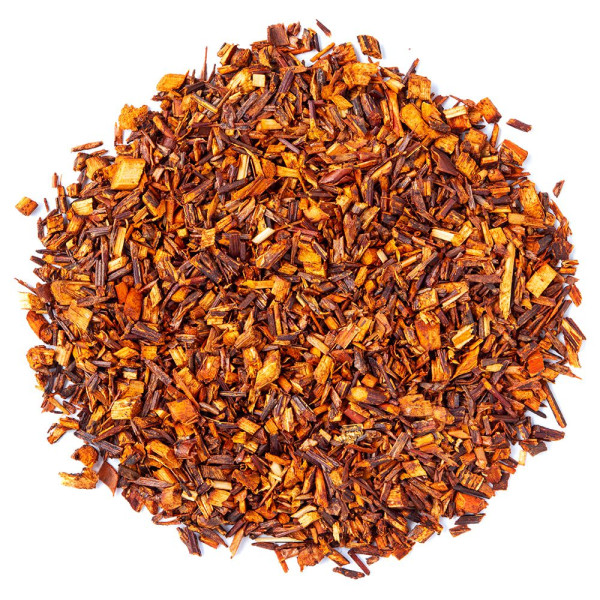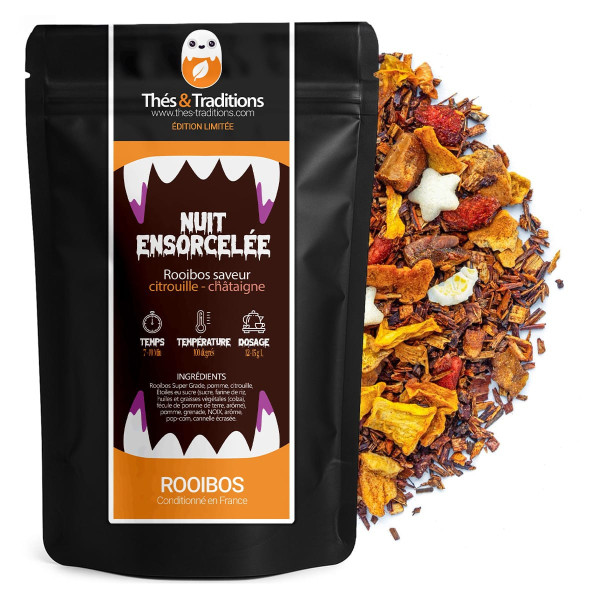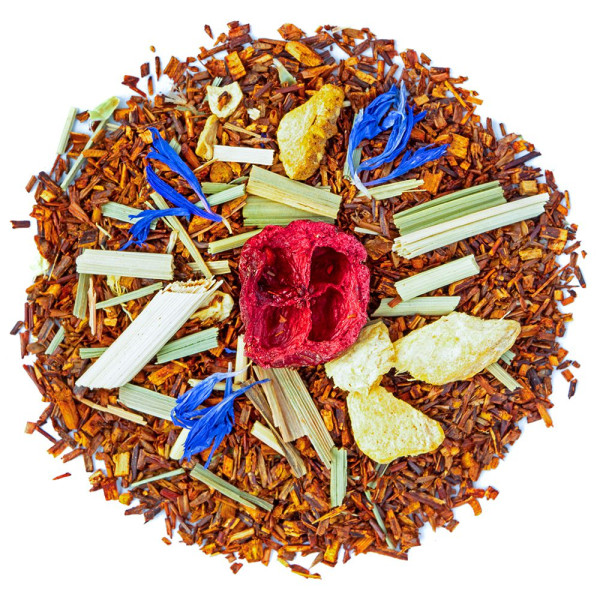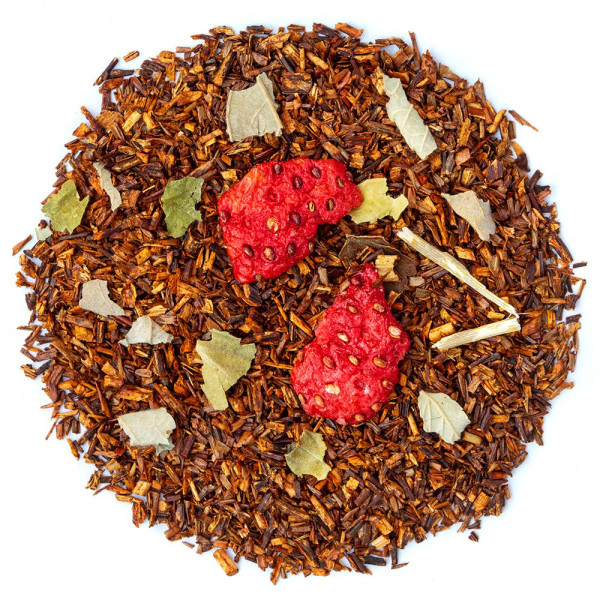Beverage with no theine, ideal for evening
Rooibos - Red Tea
Who would have thought that a humble bush growing only in the arid soils of the Western Cape would one day become the darling of tea lovers worldwide? Rooibos, this "tea that isn't really tea", defies all conventions. Caffeine-free, rich in antioxidants, and bursting with flavor, it stands as the ideal beverage for any time of day, from dawn to dusk. But don't be fooled: behind its reddish color and slightly sweet taste lies a universe of infinite taste possibilities. Vanilla, orange, almond, spices... rooibos lends itself to all kinds of flavor fantasies. Join us in exploring the fascinating history of this miraculous plant, from its traditional harvesting to modern preparation, and discover why rooibos might just become your next ally for health and pleasure. Prepare your cup, the adventure begins
Discover our detox teas & herbal teas
Herbal infusions with draining plants, ideal for your seasonal wellness programs.
DiscoverApple-cinnamon rooibos, voluptuous, gourmet pleasure
Rooibos flavored with Christmas magic: relaxing, fruity, spicy
Rooibos with a citrus touch: a wave of freshness
Red fruits Rooibos: Strawberry, blackcurrant, redcurrant,...
Unfermented green rooibos rich in antioxidants and vitamins
Gourmet green rooibos, crunchy pistachio and melting white...
Red tea rich in antioxidants with a slightly sweet taste
Red tea with multiple benefits, fruity and tangy
Theine-free gourmet Rooibos with red fruit flavor
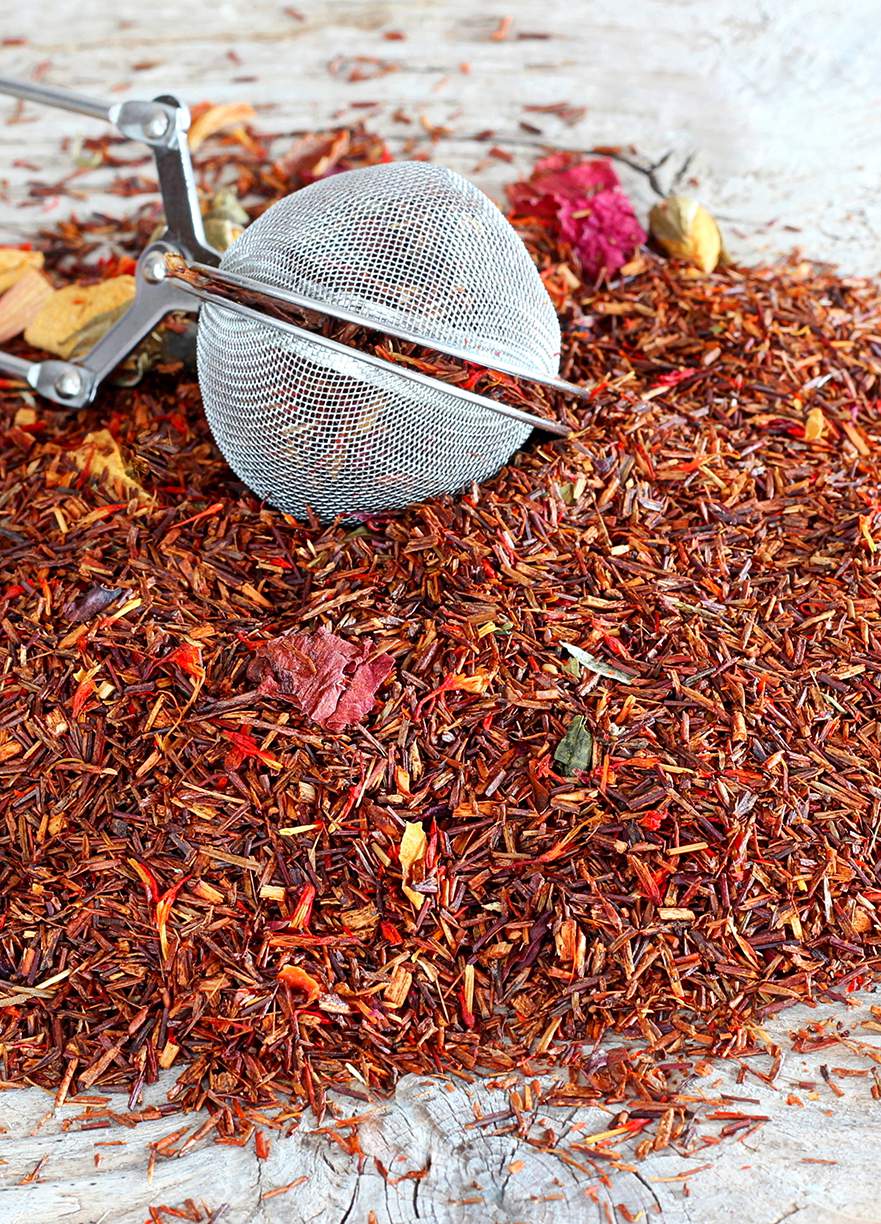
The Complete Guide to Rooibos: Discover the Secrets of this Unique Infusion
Rooibos, often mistakenly called "red tea", is a unique infusion originating from South Africa that is gaining popularity worldwide. Unlike tea from Camellia sinensis, rooibos comes from a wild shrub called Aspalathus linearis. Let's dive into the fascinating world of this drink with multiple virtues.
I. What is Rooibos?
A. Origins and history of Rooibos
Rooibos, or "red bush" in Afrikaans, is a plant endemic to the Cederberg region, north of the Western Cape in South Africa. Traditionally consumed by local populations for centuries, it was only at the beginning of the 20th century that its cultivation and commercialization gained momentum. Today, rooibos has become South Africa's national drink and is winning over infusion enthusiasts around the world.
B. The plant: Aspalathus linearis
Aspalathus linearis is a shrub belonging to the Fabaceae family, related to acacia. It grows only in the sandy and acidic soils of the Cederberg mountains. This robust plant, adapted to the semi-arid climate, produces fine needle-shaped leaves and small yellow flowers. Harvesting is done once a year, usually between January and March.
C. The different varieties of Rooibos
There are mainly two types of rooibos: red and green. Here's a comparative table of their characteristics:
| Characteristic | Red Rooibos | Green Rooibos |
|---|---|---|
| Manufacturing process | Fermented | Non-fermented |
| Infusion color | Reddish red | Golden yellow |
| Taste profile | Round, smooth, slightly sweet | More herbaceous, slightly astringent |
| Antioxidant content | High | Very high |

II. The Benefits of Rooibos
A. Antioxidant Properties
Rooibos is particularly rich in antioxidants, especially flavonoids like aspalathin, which is unique to this plant. These compounds help neutralize free radicals in our body, thus helping to prevent premature cellular aging and various chronic diseases.
B. Digestive Benefits
Rooibos is known for its soothing properties on the digestive system. It can help relieve digestive issues such as bloating, stomach cramps, and nausea. Its low tannin content makes it particularly gentle on the stomach, unlike black tea which can sometimes be irritating.
C. Benefits for Skin and Hair
The antioxidant and anti-inflammatory properties of rooibos make it an excellent ally for skin and hair health. Here are some of its main benefits:
- Fights skin aging
- Soothes irritations and eczema
- Strengthens hair and stimulates growth
- Helps reduce acne and blemishes
D. Other Benefits (relaxation, caffeine-free)
Rooibos has natural relaxing properties, making it an excellent evening drink. Unlike tea or coffee, it contains no theine (caffeine), making it ideal for people sensitive to caffeine, pregnant or nursing women, and those looking to reduce their stimulant intake. Additionally, its richness in minerals such as calcium, manganese, and fluoride contributes to bone health.
IV. Myths and Facts about Rooibos
A. Is Rooibos a tea?
Although often called "red tea", rooibos is not a true tea. Here is a comparative table:
| Characteristic | Rooibos | Tea |
|---|---|---|
| Original plant | Aspalathus linearis | Camellia sinensis |
| Contains theine | No | Yes |
| Geographical origin | South Africa only | Asia, Africa, South America |
| Main types | Red and green | Black, green, white, oolong |
B. Why is it called red tea?
The name "red tea" comes from the reddish color of fermented rooibos infusion. This designation, although botanically inaccurate, has spread by analogy with traditional tea and for commercial reasons. In France and other countries, the term "rooibos infusion" is often preferred to avoid any confusion.
C. Does Rooibos prevent sleep?
Contrary to popular belief, rooibos does not prevent sleep. On the contrary, being naturally theine-free, it can be consumed in the evening without disturbing sleep. Its relaxing properties even make it an excellent ally for a peaceful night. It is often recommended for people suffering from insomnia as an alternative to traditional herbal teas.
In conclusion, rooibos is much more than just a beverage. Rich in benefits, versatile and flavorful, it fully deserves its place in our daily lives. Whether you're a tea lover looking for a theine-free alternative, or simply curious to discover new flavors, rooibos will win you over with its unique qualities and subtle taste.
III. Preparation and Consumption of Rooibos
A. How to properly prepare your Rooibos?
To prepare a delicious cup of rooibos:
- Use one teaspoon of rooibos per cup (250 ml) of hot water.
- Pour simmering water (95°C) over the leaves.
- Let steep for 5 to 10 minutes. Rooibos never becomes bitter, even with a long steeping time.
- Strain and enjoy plain or with milk, honey, or lemon according to your preferences.
Rooibos can also be enjoyed iced, perfect for hot summer days.
B. When to drink Rooibos?
Rooibos can be consumed at any time of day or evening, thanks to its lack of theine. It is particularly appreciated:
- In the morning, for a gentle wake-up
- After meals, to aid digestion
- At the end of the day, to relax
- Before bedtime, to promote peaceful sleep
C. Rooibos-based Recipes
Rooibos lends itself to many creative recipes. Here are some ideas:
- Red berry rooibos smoothie
- Peach rooibos granita
- Rooibos and vanilla panna cotta
- Citrus rooibos-gin cocktail
